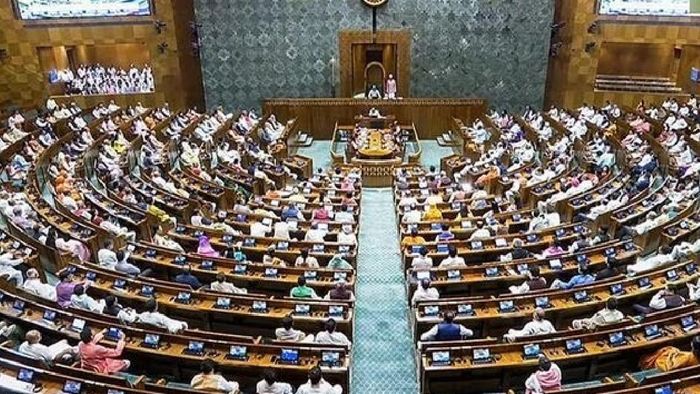Women's Reservation Bill passed in Lok Sabha after 27-year wait
The bill, introduced by the government on September 19, aims to provide 33 percent reservation for women in both the Lok Sabha and state assemblies, marking a significant stride towards gender equality in Indian politics.

- Sep 20, 2023,
- Updated Sep 20, 2023, 7:41 PM IST
A momentous day unfolded in the Lok Sabha as the Women's Reservation Bill, officially known as the Nari Shakti Vandan Adhiniyam, was successfully passed after a 27-year journey. The bill, introduced by the government on September 19, aims to provide 33 percent reservation for women in both the Lok Sabha and state assemblies, marking a significant stride towards gender equality in Indian politics.
The discussion on this long-awaited bill commenced at 11 am, and its passage was eagerly anticipated. Prime Minister Narendra Modi, on the day of its introduction, hailed September 19 as a "historic day" and called upon Opposition parties to come together and support the legislation.
In his impassioned speech, PM Modi stated the pivotal role played by women in policy-making and governance, emphasizing that this bill's implementation was a divine mandate. He expressed his unwavering commitment to ensuring that the aspirations of women for political representation are fulfilled.
This Women's Reservation Bill represents a fresh attempt at addressing gender disparity in politics, distinct from previous iterations that faced challenges and were not enacted. The Lok Sabha dedicated a seven-hour window to deliberate on this groundbreaking legislation.
What the Bill Proposes:
The Nari Shakti Vandan Adhiniyam proposes a significant reform in the realm of gender representation. It advocates for a 33 percent quota for women in both the Lok Sabha and state assemblies, thereby creating a more equitable political landscape. Following the debate, the bill is poised for approval in the House later today.
However, it is essential to note that this legislation will come into effect only after the completion of a delimitation exercise. As a result, it is unlikely to be operational during the upcoming Lok Sabha elections in 2024.